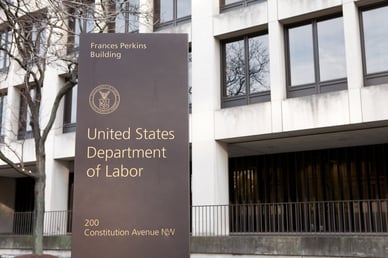 This week it became known that the Department of Labor is proposing another extension to the fiduciary rule – this time as an 18-month extension of the current “transition period” related to the applicability date of the fiduciary rule. The rule is certainly complex, we’ve written and spoke on it countless times.
This week it became known that the Department of Labor is proposing another extension to the fiduciary rule – this time as an 18-month extension of the current “transition period” related to the applicability date of the fiduciary rule. The rule is certainly complex, we’ve written and spoke on it countless times.
At its heart, the rule seeks to expand the group of parties whose activities constitute investment advice when servicing retirement plans and their participants, hence making these parties fiduciaries under ERISA.
In addition, the rule seeks to bring IRA rollovers within the scope. By expanding the definition and including IRAs, many parties have had to adjust their servicing procedures. Further, the Department of Labor (and potentially plaintiff’s attorneys) has a clearer path to take action against parties under the definition that fail to meet the ERISA fiduciary standard, one of the highest known to law.
We hope that this latest round of delays is just that: delays. Since the inception of our firm, Multnomah Group has embraced our role as fiduciaries and will continue to do so. While serving plan sponsors and their participants, we have seen first-hand the damage that bad actors can have on retirement plan success and how financial professionals not bound by the higher ERISA fiduciary duty can reduce the effectiveness of a career worth of savings during the IRA rollover process.
Whether this rule, or some other, plan participants deserve more.
For more information on the fiduciary rule and what plan sponsors should do to remain compliant, watch our latest webinar recording.
Multnomah Group is a registered investment adviser, registered with the Securities and Exchange Commission. Any information contained herein or on Multnomah Group’s website is provided for educational purposes only and does not intend to make an offer or solicitation for the sale or purchase of any specific securities, investments, or investment strategies. Investments involve risk and, unless otherwise stated, are not guaranteed. Multnomah Group does not provide legal or tax advice.
Any views expressed herein are those of the author(s) and not necessarily those of Multnomah Group or Multnomah Group’s clients.

